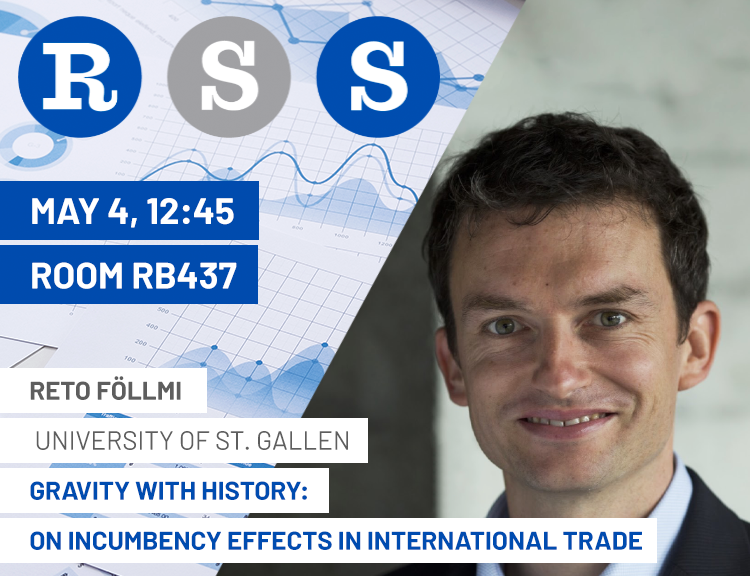Reto Föllmi (University of St. Gallen) 4.5.2023
V rámci Research Seminar Series in Economics máme tu čest, že nám ve čtvrtek 4.5.2023 od 12:45 do 14:15 v místnosti RB437 bude přednášet prof. Reto Föllmi (University of St. Gallen)o svém výzkumném projektu s názvem „Gravity with History: On Incumbency Effects in International Trade“.
Registration is not required and anyone who would like to attend is warmly invited.
Bio: He is a Professor of International Economics at the University of St.Gallen, Director of SIAW-HSG, and currently Dean of the School of Economics & Political Science. Further, he is a Research Fellow of the Centre for Economic Policy Research (CEPR, London). He earned my Ph.D. in Economics at the University of Zurich and has held visiting appointments at various universities. From 2007–2011, He was a Professor of Macroeconomics at the University of Bern. His research interests lie in macroeconomics, distribution, international trade, and economic growth. He has published extensively on these subjects, including two books as well as several articles in leading journals.
Abstract: We analyze how the history of trade liberalizations affects trade today. We develop a dynamic general equilibrium model of international trade with heterogeneous firms. The framework nests the canonical Melitz2003 model as a special case. The key novelty is that fixed costs of market access are decreasing with tenure. As a consequence, there is less market exit and entry in response to a trade shock. We derive a gravity equation and show that, ceteris paribus, countries that liberalized their trade relationship earlier trade more today. We implement a structural estimator to provide supporting evidence for the underlying mechanism, and derive an augmented ACR formula Arkolakis2012 for the gains from trade that accounts for incumbency effects. A quantitative analysis suggests that our mechanism can explain up to 25 percent of the home share in the data, and that the gains from trade are, on average, 10 percent larger than those suggested by conventional models. Our analysis further reveals novel distributional effects of trade that benefit real wages but lower profits.
For the upcoming seminars, see the RSSE Calendar or Program.
